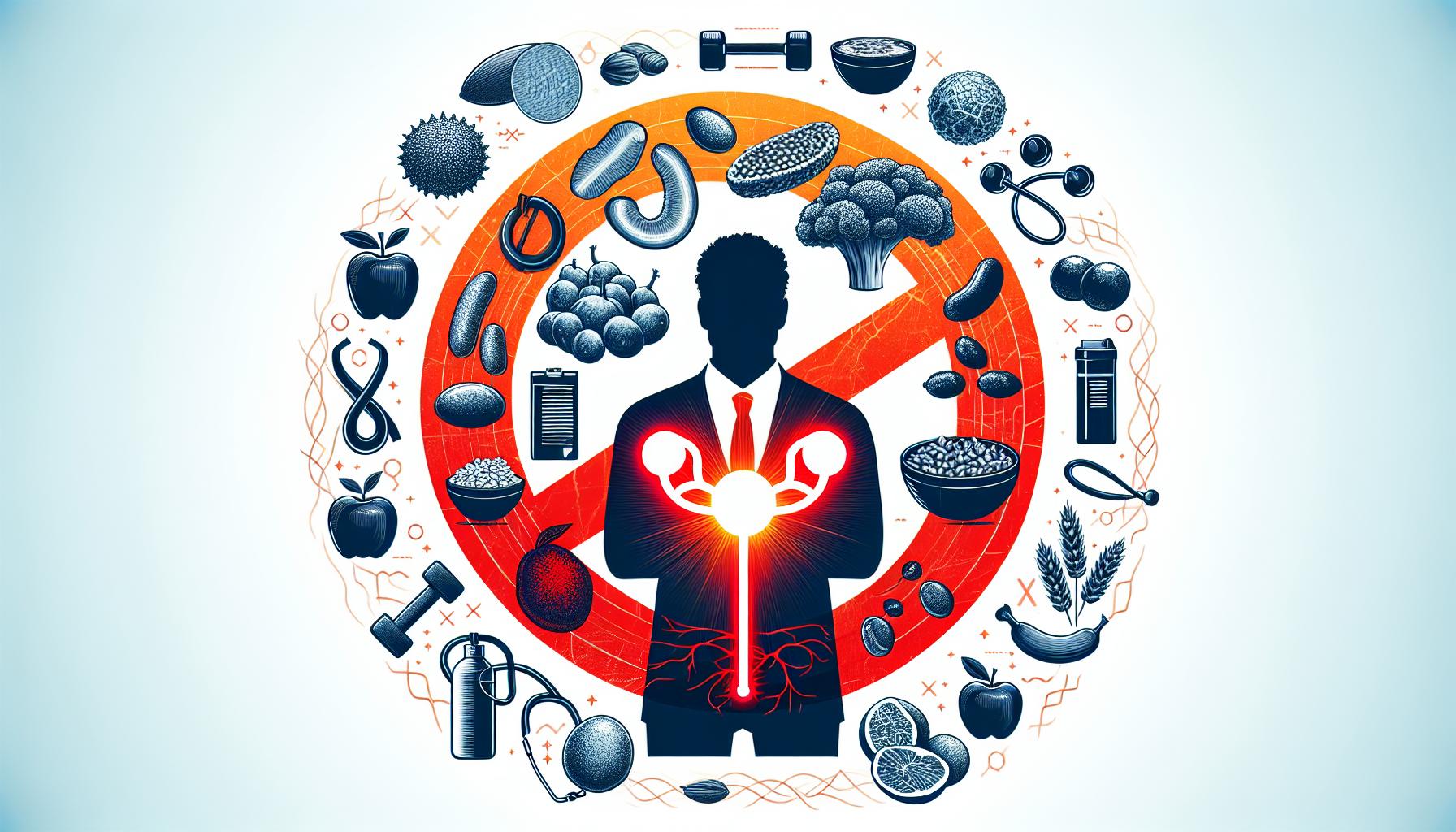Introduction
When it comes to protecting your prostate, your first line of defense is often found in the kitchen. So, the question on many minds is, what are the worst foods for prostate health that need to be avoided?
In a nutshell, the primary culprits tend to be foods high in saturated fats, full-fat dairy products, and processed meats, among others. But worry not, we’ll delve into more nuanced details as we stroll down the gastronomic lane.
This article serves up a hearty helping of knowledge about nine prostate health foes hiding in your pantry or refrigerator. We’ll dig into each one, revealing the reasons they threaten your wellness and offering healthier alternatives where possible.
Bad-Fat Foods
Foods overloaded with bad fats, such as saturated and trans fats, are the founding members of the “Foods to Avoid for Prostate Health” club. They can rig up a carnival of chaos in your body, including inflammation, obesity, and heart disease–all of which can negatively impact prostate health.
1. Red Meat
Like an unwelcome guest who overstays their welcome, red meat, especially when consumed in excess, can cause a cascade of health concerns. It’s particularly rich in saturated fats, contributing to the risk of developing prostate cancer.
Dairy Danger
Dairy products might put a damper on your prostate health. That’s because they tend to runneth over with saturated fat, which can be troublesome not just for your waistline but also for your prostate.
2. Full-Fat Dairy Products
Notably guilty are full-fat milk, cheese, and butter. It’s like playing Russian Roulette with your health. Opting for low-fat alternatives can work wonders in keeping your prostate under guard.
Cruelty of Processed Foods
Turning the spotlight onto our next offender, processed foods can be particularly harmful to prostate health. These cunning culinary culprits are often packed with unhealthy fats, sodium and preservatives, which can paint a bleak picture for your prostate and general health.
3. Processed Meats
Hot dogs, sausages, and the like are like wolves in sheep’s clothing. Their savory flavors mask a cabal of potentially harmful contents, including high levels of sodium and nitrates, making them some of history’s most notorious prostate enemies.
Simple Sugar Shenanigans
Craving sweetness can be bittersweet when it comes to your prostate health. Simple sugars found in many desserts and sweet beverages can wreak havoc on our health, catalyzing a slew of issues, including obesity and inflammation.
4. Sugary Foods and Drinks
Like bees to honey, we’re often attracted to the sweetness of cakes, cookies, soda, and the likes. But this sweetness masks a bitter truth: these foods can harm your prostate health.
Conclusion
Opting for a more balanced and nutritious diet isn’t just beneficial for your prostate; it’s a boon for your overall health condition. Making smart choices today can save you from a plethora of health issues tomorrow, so it’s best to steer clear of these prostate health offenders. By replacing these foods with healthier options, you encourage a healthier, happier prostate.
Frequently Asked Questions
1. Does caffeine affect prostate health?
While moderate consumption isn’t a major concern, excessive caffeine can lead to issues with urinary tract health, which could indirectly impact your prostate.
2. Are spicy foods bad for the prostate?
Spicy foods in moderation shouldn’t create significant issues, but some individuals may notice increased urinary symptoms after consuming spicier foods.
3. Is alcohol bad for prostate health?
Overconsumption of alcohol can cause numerous health problems, including potential issues with prostate health. Moderate drinking shouldn’t pose a significant risk.
4. Does diet alone determine prostate health?
While diet plays a crucial role in prostate health, it’s not the sole determinant. Factors such as genetics, physical activity levels, and overall health also come into play.
5. What are some foods good for prostate health?
Berries, fatty fish, bell peppers, tomatoes, and green tea are some foods that are often associated with good prostate health.


